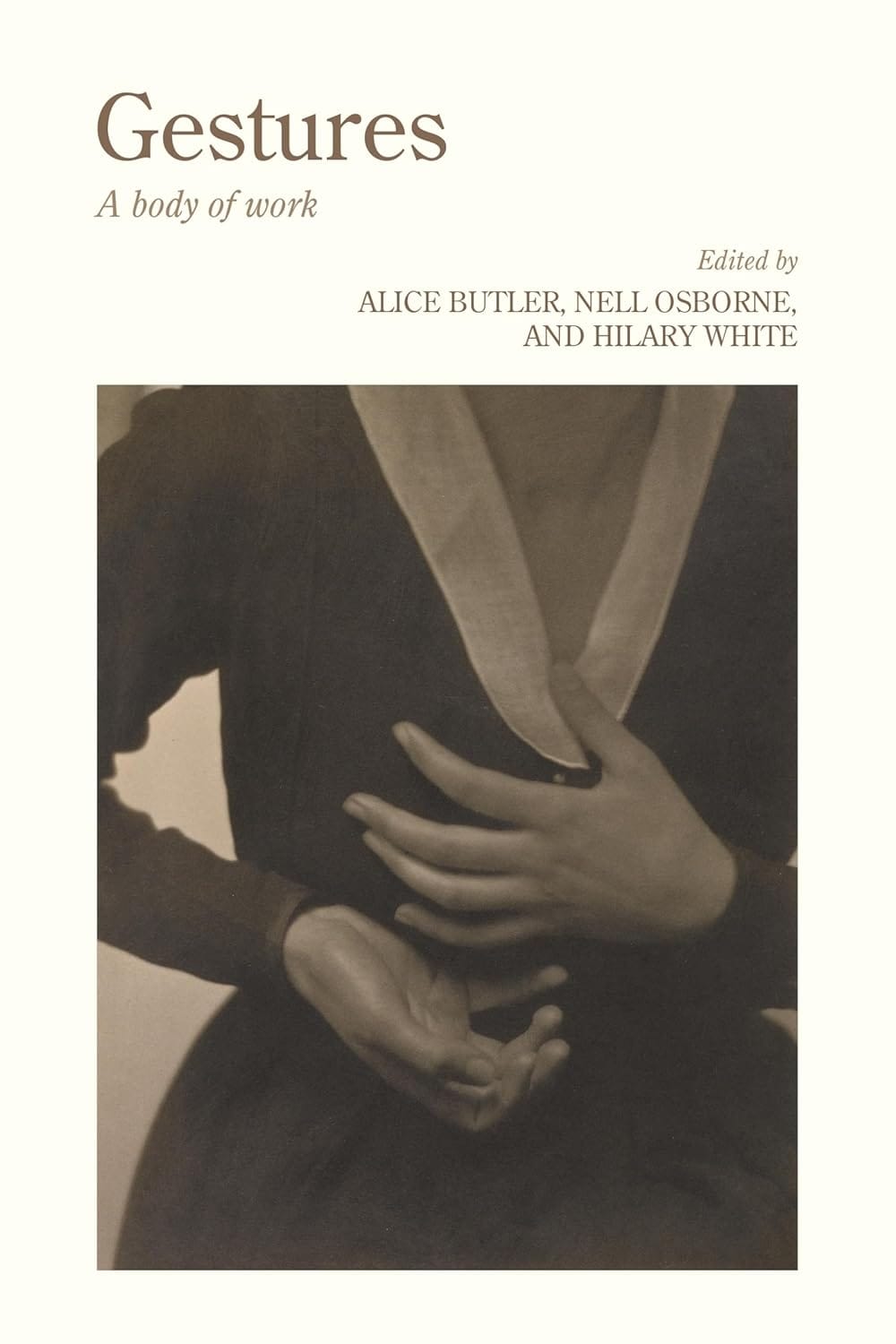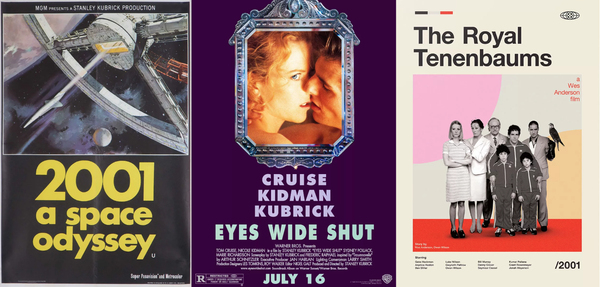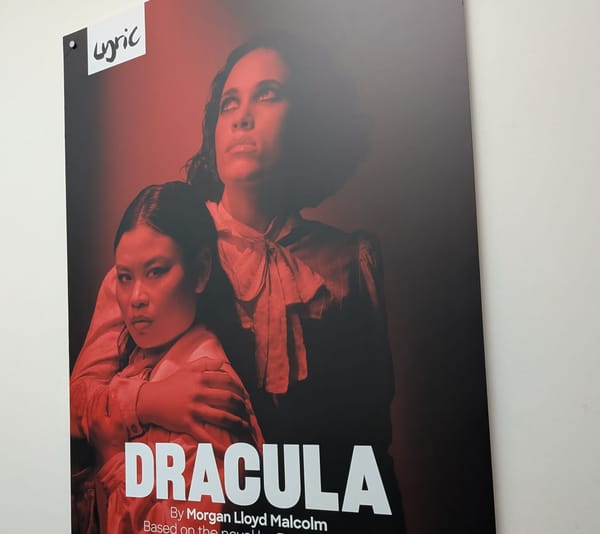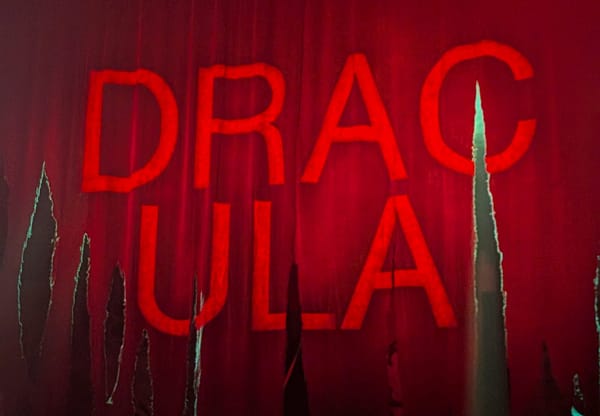Those Literary Things + Men
I was present at one of the most exciting and bizarre literary events I have ever seen: the launch of Gestures on 3rd April at the Royal Academy of Art, Battersea. The cover image shows the hands of Georgia O'Keeffe.

What better name for a writing platform than Ghost? I find myself a man at a time when the existence of men is being questioned. I feel like this is progress: at least we are not questioning the existence of women, or the right of Israel to exist. Not today.
I find myself too busy, to self-occupied, or too disciplined to read any of the rubbish that I am told is being written about that incredible Netflix phenomenon. I don't need to name it. To mention it is to dilute it. It did not make me angry. I found myself moved by Erin Doherty's refusal to give ground or show (too much) emotion in her episode. She held it all in until she was alone. I think that is the best way to deal with emotions.
I could pretend I have no idea how I know Nell Osborne, one of the editors of Gestures. This often happens to me. It's half true. I know she's someone from Instagram. I know she caught my attention with the text below. Perhaps I thought she was in Manchester at one point. I'm not but still. The north and all that. So either we know someone in common or it was an algorithm.
Anyway, I know why I remember Nell. Read this and try to forget it.
Happy Birthday? Volume 2 // lofi DIY mail out zine for experiments in form, narrative, affect; for difficult, weird, dense, opaque, ugly, absurd, hostile, and unlikeable writings... Printed by the grace of friends with institutional employment, and free to whoever wants a copy.
WTF? It's like a personal ad. Why the question mark after birthday?? (You see I need to use two now.) WTF is lofi in relation to text? The next thing I did was to order my free copy.
Happy Birthday? Volume 2 is every bit as weird as you would think, but nevertheless very brilliant and original. You have to watch these poet types. They write so little, and take so long over that little, that they have to try other tricks. It is something about whitespace, form and the actual paper chosen for the job.
That line about 'free to whoever' reminds me of Withnail. And why? I dunno. Let's look at the line together and see if we can figure it out.
I mean, free to those that can afford it; very expensive to those that can't.
I can't figure that out either. I don't know if it even made sense to Bruce Robinson. Anyway, I paid for postage and a bit more on top. When it arrived I decided to go to the launch of Gestures, not least because there was a handwritten invitation on the back of the envelope. Gestures the book appeared to be £100 worth of the same sort of stuff. It looks a bit literary for a bloke anyway, but these things usually have free wine. Wine not blokey, but free unpretentious wine yes.
Withnail ends with the soliloquy from Hamlet. By this point in the film (the bitter end) it is raining outside and inside his head. Withnail's friend, called I in the script and played by Paul McGann, has an acting role and is leaving. Imagining Withnail without his friend is sobering stuff. Some key points from the speech, belted out in Regent's Park: "What a piece of work is a man! how noble in reason! how infinite in faculty! ... And yet, to me, what is this quintessence of dust? man delights not me: no, nor woman neither, though by your smiling you seem to say so."
Goodness me, but what is a bloke? Certainly the Shorter OED is no help. A bloke is a man, a fellow. It cannot be that simple. We're going to need to go full monty for this one. Here we go. The OED (real one) has it. In 1839 this person was a bloak, not a bloke. Blokes with an e (no a) arrived sometime between then and 1861. Regular readers will know of my Patrick O'Brian obsession. From 1914, a bloke could be a ship's commander, presumably a captain or higher rank. Bloke is slang anyway, and I think there we hit the nub. I find myself underwhelmed. But slang is hard to pin down, always.
Anyway this is one of the other things that started me off today: Esquire on why men (blokes) should read literary fiction. The writer of that piece is Alex Bilmes, a man whose name I have no idea how to pronounce. But he has a mainly sound mind. Where are the male novelists? Well, they exist. Just not in Britain. They're in America, or almost anywhere but London. What is happening?
Alex Bilmes mentions two books men should read: David Szalay’s Flesh and Charlie Porter’s Nova Scotia House. I will not be reading them. Even the Kindle versions cost £10, daylight robbery for unknown authors. I will be listening to them for two reasons. I have two Audible credits available yes but whenever I download a reading book (I mean an eBook) it gets lost in the forest for about five years before I read it. Audible, provided I can stay awake, focuses my erratic mind. Anything that lets me rest my tired eyes. I am listening to Flesh now and it's good in the way that 1965's In Praise of Older Women is good. If you really cannot bring yourself to read it then there are two films.
I write this listening to Queen Live at Wembley, a show during which Freddie Mercury, a man who sang a lot about love, tried to make us all believe he was in love with women. On stage, he chose to deny a rumour that Queen were splitting up. No chance, he said. We're together until death. The Spotify version claims this album dates to 1992, a year after Mercury's death. In fact it was recorded in July 1986. At the time he made that statement he knew he had a very serious illness. In 1987 he found out it was AIDS. He died in 1991.
Charlie Porter's novel is about a gay relationship. Szalay's book is about a Hungarian teenager called István who sleeps with his 'ancient' 42 year-old neighbour. Neither of these books will be read by any blokes.
By the way, Charlie Porter worked at Esquire and GQ and Esquire have been promoting the pants off David Szalay before. Has any money changed hands for these recommendations? I ask because it usually does. Everything you see in Waterstones is there because a publisher bought the space.
One of the best films I have ever seen about masculinity, about how it can go wrong, or right, and how complicated it can feel, is Lost in Translation. It was written by a woman. Spotify has chosen to play Just Like Honey from that film. Whoever those Scottish guys are, they know about masculinity. So do Pete Townshend and Roger Daltrey.
Masculinity is not a problem. You would hardly let me sit here and write that Femininity is a problem. Masculinity is not toxic.
There is a problem with people, and hopefully not that many people, on social media in relation to masculinity. But then, there are problems on social media on any topic you could choose to mention. The problem is not the topic, it is not the people. The problem is the medium, the platform. It does not allow considered debate and typically descends into farce within about three and a half sentences.
Another thing regular readers have come to expect is that I will somehow draw all these threads together by the end. I am not sure I can this time.
Gestures is about femininity. Or is it about feminism? Are these the same? They could be but are usually not. Feminism, according to the OED is about advocating for the equality of the sexes. Femininity is just about the characteristic qualities of women and does not relate to men. I will not see any blokes on Thursday, happily. But I hope to see a man or two. Feminism used to include men and to my mind still does. Whatever my mind, the dictionary confirms it.
At the launch there were around two hours of performances of some of the poetry and other works from Gestures. It's a brilliant achievement of a book, created by a group of friends who met at university. The three editors were later doing their PhDs at the same time, during lockdown, and the idea of a collaboration was born. The performances included straight readings, singing, someone reciting while eating blackberries, water in buckets... it was surprising and unique, memorable and absolutely brilliant.
Those two novels I mention do not represent any kind of step towards getting men to read, or even listen. Where is the next Money? Where is London Fields? Ian McEwan should have retired in the 1980s, as should Martin Amis. What they did together was heroic. But it is over. Their sort of blokeishness, thank goodness, is gone.
Now, bloke means only man. But blokeish is different. It does not simply mean mannish. You have to watch English. Blokeish means stereotypically masculine. Examples given include waxing the car, mowing the lawn. LOL. What is wax? What a lawn? Yes, blokeishness belongs to a world where everyone drove a car and had a lawn. That bloke collected LPs or CDs and watched something called television.
There is nothing wrong with masculinity.
What is wrong is the twattersphere's addiction to shitness. If you want to talk about masculinity, or femininity for that matter, at least take the trouble to find out what those things are. Blokeishness has gone, and we are all better off for it. But if it has, and you may disagree, then at least give the poor sods something else to do, an alternative way to be. You might already know that this is a zone devoid of blokeishness.
I write a lot about the gangs and gang culture as it was a century ago. Those boys (mainly under 20) belonged to a world where blokeishness was on the rise. The bloke as I understand him reached his peak with Harry Enfield in the 1990s. This would tie bloke in with Martin Amis and McEwan too. He would connect to Vyvyan Basterd (Adrian Edmondson) or Rick (Rik Mayall) in the Young Ones. You might not know any of these names, and you are no worse off for that. This bloke was sometimes played by Richard E. Grant (for whom Withnail would be his most memorable role) but never Hugh Grant. Hugh Grant, much that it pains me to admit, was the start of modern bloke. Hugh Grant provides the start of an answer to these questions.
Hugh Grant's blokeishness is better by far. Although they hate each other, his blokeishness is tied to Colin Firth. As long as those two are working, there is nothing wrong with masculinity. There is a lot wrong with some parents, with some teachers, with some schools, with all social media platforms and some technology, especially Big Tech. There is a lot of wrong in the world. But there always has been. This time, the men are not the problem. Except it is men who control Big Tech.
Footnote
The comments are below in case you disagree. It is worth noting that until the twentieth century, which is not so very long ago, the primary meaning of the word man was actually human. Until recently therefore, man always included woman. In this world of grammar and technicalities therefore, if there was a problem with man then perhaps half the problem was with woman.





